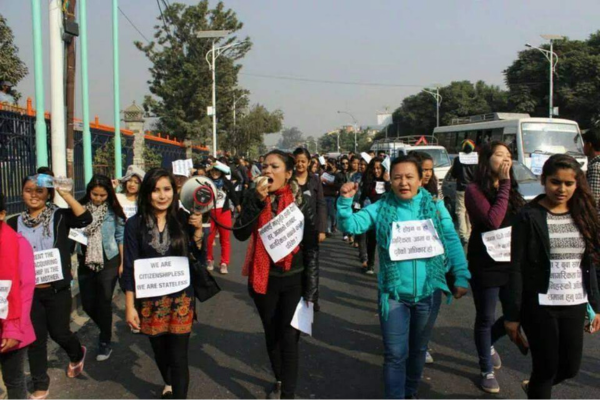
Many women do not have the right to pass their nationality on to their children and spouses, simply because they are women. For these women and their families, accessing healthcare, education, and jobs are enormous challenges that can span a lifetime.
The Women’s Refugee Commission (WRC) founded and hosts the Global Campaign for Equal Nationality Rights. We work together with organizations and activists around the world to fight for nationality laws that provide women with the same right as men to pass their nationality on to their children and spouses and to acquire, change, and retain their nationality without discrimination.
In 24 countries, women are denied the right to pass on their nationality to their children. Gender-discriminatory nationality laws undermine women’s equal citizenship and result in wide-ranging human rights violations, statelessness, and gender-based violence. They create financial burdens and can result in loss of property. And they cause needless harm and suffering to affected children—some of whom are rendered stateless and experience severe psychological trauma as they face a future of denied opportunities and no legal recognition in their homeland.
WRC, together with its Global Campaign partners, mobilizes international action to end gender discrimination in nationality laws. We advocate at the national, regional, and international levels to engage policymakers and the public so they understand the significant harm caused by these laws. We explain why reforming these laws is in the best interest of countries, including building more resilient, thriving, and just societies.
The bravery and dedication of affected activists inspire me in my work. Deepti Gurung is a Nepali activist whose kids, though born in Nepal, were stateless under Nepal’s laws. As a young single mother, her children were unable to acquire their father’s nationality and denied their mother’s nationality due to gender discrimination in the law. Deepti has been a fierce advocate for her family and for families across Nepal. Her courage and persistence took her case for her children’s citizenship to the country’s highest court—where she won. Now, Deepti is a leader of the campaign for women’s nationality rights in Nepal and is helping other women fight for their right to equal citizenship for their kids.
I’m also inspired by the youth activists joining this fight for equality. Through virtual and in-person trainings, we are providing these young people with the knowledge and tools they need to support national campaigns to end these laws and launch local advocacy projects.
With the help of our strong partners and generous support, WRC has been successful—some countries have already changed their laws and implemented reforms. We’re working to build on this success to ensure that all countries uphold gender equality in their nationality laws. These efforts are a critical component of WRC’s work to advance the rights of displaced women, children, and people marginalized by gender, sexual identity, age, ethnicity, or health and physical challenges, so that they may live in safety and have the opportunities to learn, work, and build their futures, as we all deserve.

